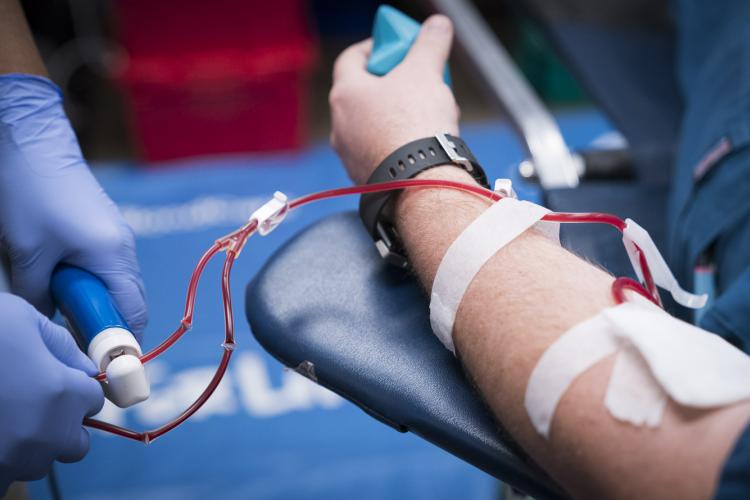
Organizers at Carter Blood Care are hoping for a big turnout at the next JPS Health Network blood drive to help them support area hospitals through one of the leanest times of the year for donations.
It will be held from 9 a.m. until 5 p.m. Monday, January 7 on the third floor of the main John Peter Smith Hospital building near the red elevators.
“I don’t like to use words like critical,” said Carter Blood Care donor recruiting consultant Judy Smith. “But things are really tight right now. We’re in serious need for blood, including all the negative types.”
The winter holidays are always a tough time of the year for blood donations, according to Smith. She hopes people will find a little bit of time to set aside to help replenish the supply because it could be the difference between life and death for a victim of a car accident or a patient on an operating table.
“We count on high school students for about 20 percent of our donations and they’re out of school this time of year,” Smith said. “It’s also a time when families are traveling and going on vacation, so giving blood isn’t something that’s on their mind. Still, we don’t want to be unable to help when we’re called on for life-giving blood.”
According to Marie Becerra, manager of Transfusion Services at JPS, said an average of 55 trauma patients a month who come through the ambulance bay doors require blood to help repair their damaged bodies.
“Being a Level I Trauma Center, it’s vital that we’re able to maintain a ready supply of blood products, especially O Negative blood that is used for trauma patients,” Becerra said.
Called the “universal blood type” because it can be used in patients born with almost any blood type, only 6.6 percent of people have O Negative blood.
Also in short supply are Rh negative red blood cells, according to Becerra. About 85 percent of the population has Rh positive blood, which means it has antigens that can cause a reaction if transfused into the body of a person who has Rh negative blood.
“It’s been very challenging for the Dallas-Fort Worth area to maintain a supply of Rh negative blood products,” Becerra said. “We need all the donations we can get.”
Blood banks have become increasingly dependent on hospital team members to make donations because that’s a group which consistently contributes. Smith said, in recent years, there has been a 40 percent decrease in the number of repeat blood donors across the board and that young people aren’t stepping up as often as older generations have.
“We have more donors over the age of 50 these days than we have from age 16-50,” Smith said. “So, the time of year, coupled with what we’re seeing in the national trends, makes this a very important drive for the people of the Fort Worth area.”
According to JPS records, the health network produces an average of 32 units of blood per drive. The event has the capacity to collect 38 units if all its appointments are filled. To sign up, click here.
Carter BloodCare screens all donors, a process that includes a finger-stick blood test for hemoglobin, which transports oxygen and is rich in iron. Would-be donors with low hemoglobin levels must be asked to postpone donation. To raise the odds of successful donation, Carter BloodCare recommends maintaining a healthy hemoglobin level by eating foods rich in iron.
Iron-rich foods include meat, fish and poultry; vegetables such as spinach, sweet potatoes, peas, broccoli, string beans and kale; fruits including strawberries, watermelon, raisins and prunes; and foods such as tofu, beans, tomato products and lentils.
